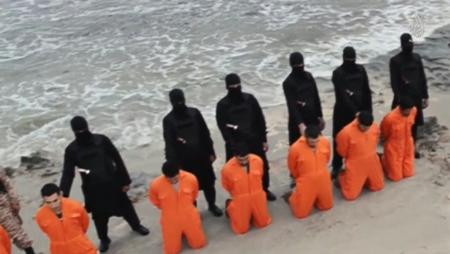Knowing and loving our enemies
Recently, our news has been full of stories of atrocious killings perpetrated in the name of religion: ISIS, or the so-called Islamic State, and Nigeria's Boko Haram lead the list of perpetrators, but there's also the murder of cartoonists in Paris at Charlie Hebdo and in Denmark. Closer to home we have the Boston Marathon bombings, where the federal courts are trying to seat a fair-minded jury and determine whether Boston is the appropriate venue for trial. What these atrocities have in common is a link to certain fanatic and extreme interpretations of Islam, one of the world's great religions in number of adherents, geopolitical importance, and doctrinal complexity.
Of course, as President Obama noted at the recent Washington Annual Prayer Breakfast, using violence in the name of religion is not an exclusively Muslim problem, and he used the Crusades and the Inquisition as examples of ostensibly Christian violence. But that was then, centuries ago, and this is now. The White House has been reluctant to recognize the distinctively Islamic character of most of the recent terrorism. It also underestimated the threat posed by ISIS.
As Graeme Wood notes in his masterful article "What ISIS Really Wants," in the March issue of The Atlantic, "President Obama has referred to the Islamic State, variously, as 'not Islamic,' and as al-Qaeda's 'jayvee team,' statements that reflected confusion about the group, and may have contributed to significant strategic errors."
People would be well-advised to read that in-depth article to get a real sense of the ideology behind ISIS, and the threat it poses, rather than rely on the politically correct, naïve bromides of our president.
Of course, ISIS poses a threat not just to Christians and Jews (witness the recent beheadings of Coptic Christians in Libya), but also to the majority of Muslims who do not share its rigid ideology -- 200 million Shiites, for example. We really do have to make an effort to understand our enemies if we want to defeat them. And defeat them the civilized world must, to put a stop to their evil doings.
Writes Wood: "Centuries have passed since the wars of religion ceased in Europe, and since men stopped dying in large numbers because of arcane theological disputes. Hence, perhaps, the incredulity and denial with which Westerners have greeted news of the theology and practices of the Islamic State."
Pope Francis spoke out about the Coptic Christians who were martyred by ISIS: "Their only words were: 'Jesus, help me!' They were killed simply for the fact that they were Christians... The blood of our Christian brothers and sisters is a testimony which cries out be heard. It makes no difference whether they be Catholics, Orthodox, Copts or Protestants. They are Christians!... The martyrs belong to all Christians."
But for Christians, knowing our enemies is not enough. Jesus told us to "Love your enemies. Pray for those that persecute you." (Mt 5:44) Christ does not want the death of the sinner, but rather that he be converted and live. Just as Jesus taught us to turn the other cheek, he himself died praying for those that killed him, "Father, forgive them, for they do not know what they are doing." (Lk 23:34). St. Stephen, the first martyr, died with a similar prayer on his lips: "Lord, do not hold this sin against them!" (Acts 7:60)
It's a question of trying to live the Golden Rule, to do unto others as we would have them do unto us. As St. Josemaria liked to say, we have to drown evil in an abundance of good. Just because terrorists don't abide by the Golden Rule is not sufficient reason for us to reciprocate in kind.
The temptation, of course, is to do unto others as they have done unto us, rather than do unto others as we would have them do unto us. The recent report about the killing of three Muslim students in North Carolina, though ostensibly motivated by a parking dispute, involved a self-described "gun-toting atheist." Police are (and should be) investigating whether it was a hate crime.
All human lives are valuable and precious in the eyes of God and of the moral, and hopefully civil, law. In facing up to our enemies, we should not forget who we are.
As Christians, we should of course hate the sin but always love and seek to win over the sinner.
DWIGHT G. DUNCAN IS PROFESSOR AT UMASS SCHOOL OF LAW DARTMOUTH. HE HOLDS DEGREES IN BOTH CIVIL AND CANON LAW.
- Dwight G. Duncan is professor at UMass School of Law Dartmouth. He holds degrees in both civil and canon law.



















